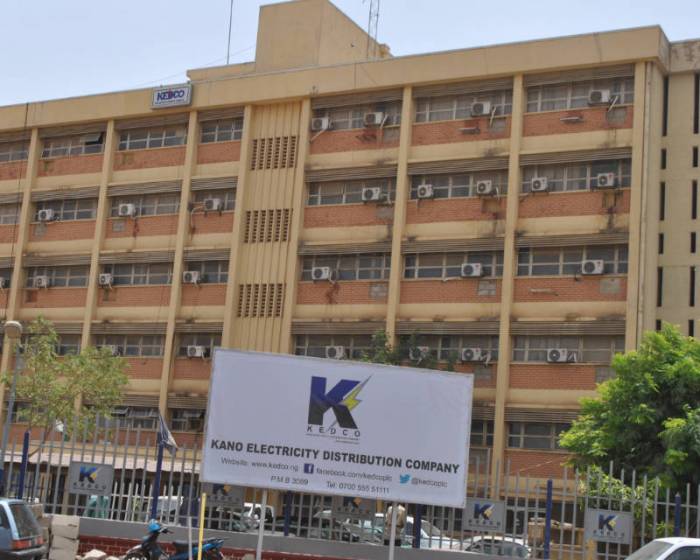The Nigerian Independent System Operator (NISO) has commended the Kano Electricity Distribution Company (Kano DisCo) for attaining a 100% market remittance rate, describing the achievement as a milestone in the electricity industry’s quest for efficiency, transparency, and financial discipline.
The commendation was issued during a recent industry review session, where NISO acknowledged Kano DisCo’s outstanding performance in meeting its full financial obligations to the Nigerian Electricity Market. The recognition, according to stakeholders, highlights the potential of distribution companies to operate sustainably and responsibly, despite the daunting challenges confronting the power sector.

The electricity market in Nigeria is characterised by liquidity shortfalls, low remittance levels, energy theft, and infrastructure deficits. These issues have persistently undermined the sector’s ability to deliver stable, affordable, and efficient electricity to consumers. Against this backdrop, Kano DisCo’s feat stands out as a rare example of operational discipline and prudent management.
Industry experts note that market remittance refers to the payments made by DisCos to the Nigerian Bulk Electricity Trading Plc (NBET) and other market participants for energy supplied to them. Historically, most distribution companies have struggled to meet full remittance obligations due to a combination of poor collection rates, billing inefficiencies, technical losses, and customer resistance to tariff adjustments.
By achieving 100% remittance, Kano DisCo has set a new benchmark for other DisCos to emulate. The company’s ability to align collection efficiency with remittance obligations demonstrates not only managerial discipline but also an effective strategy for strengthening trust among stakeholders in the electricity value chain.
The Managing Director of NISO, in his remarks, described the achievement as a “game changer” that proves the viability of the sector if the right policies, managerial focus, and customer engagement strategies are pursued. He urged other DisCos to learn from Kano DisCo’s experience and replicate similar measures to strengthen the financial stability of the Nigerian Electricity Supply Industry (NESI).
Kano DisCo, which covers Kano, Jigawa, and parts of Katsina States, has historically grappled with the same systemic issues as other distribution companies. However, industry insiders attribute its latest success to a deliberate reform strategy that focused on revenue collection efficiency, customer sensitisation, improved metering, and the deployment of digital solutions to curb losses.
A top official of Kano DisCo explained that the company had prioritised community engagement and transparency as part of its turnaround strategy. According to him, regular consultations with consumer associations, combined with the rollout of prepaid meters, helped reduce friction with customers while ensuring higher compliance with billing and payment obligations.
He added that technology adoption played a central role, as digital platforms were leveraged to improve billing accuracy, enhance customer service, and simplify payment processes. This has significantly reduced collection leakages and improved customer confidence in the company’s operations.
The company also introduced stricter internal control mechanisms to reduce financial indiscipline while investing in network upgrades to minimise technical losses. The cumulative effect of these measures created the operational efficiency required to meet its market obligations in full.
Observers believe the commendation from NISO could have wider implications for the electricity market, particularly in encouraging other DisCos to replicate Kano’s model. Achieving higher remittance rates across the board would ease the liquidity challenges that have long plagued the sector and unlock fresh investments in infrastructure upgrades.
Speaking further, the NISO chief executive noted that consistent remittances are critical to ensuring the sustainability of power generation and transmission. He stressed that if generation companies and transmission operators are not adequately compensated due to poor remittances, the entire sector suffers from underinvestment and inefficiency.
He further pointed out that Kano DisCo’s achievement provides evidence that market discipline is possible, even in regions with significant operational challenges. “It shows that with the right focus, collection efficiency, and customer trust-building, distribution companies can meet their obligations and play their part in stabilising the Nigerian power sector,” he said.
Consumer rights advocates also welcomed the achievement but urged Kano DisCo not to rest on its laurels. They emphasised that remittance success must go hand in hand with improved service delivery, reduced outages, and fair billing practices. According to them, consumers must feel the impact of the company’s financial discipline through tangible improvements in power supply and customer relations.
Analysts argue that if more DisCos follow Kano’s path, the NESI could experience a turnaround in financial stability. Full remittance compliance across the board would guarantee that market participants downstream are adequately compensated, encouraging new investments in generation capacity, transmission infrastructure, and distribution networks.
However, experts caution that structural issues such as inadequate tariffs, energy theft, and poor metering coverage still need to be addressed holistically. While Kano DisCo’s case is a positive development, the broader sector requires sustained reforms to achieve long-term stability and efficiency.
In conclusion, NISO’s commendation of Kano DisCo serves as both recognition and a challenge. It highlights the company’s exemplary performance while setting a standard for other distribution companies to follow. The success story underscores the importance of strong managerial strategies, community engagement, and technology adoption in overcoming the systemic hurdles facing Nigeria’s power sector.
If replicated nationwide, such achievements could significantly reduce market shortfalls, improve service delivery, and position Nigeria’s electricity industry on the path to financial sustainability and reliability.
Support InfoStride News' Credible Journalism: Only credible journalism can guarantee a fair, accountable and transparent society, including democracy and government. It involves a lot of efforts and money. We need your support. Click here to Donate
